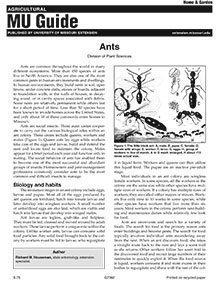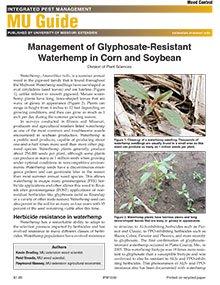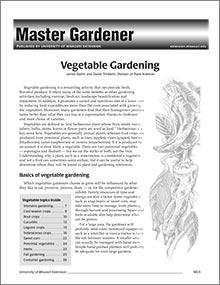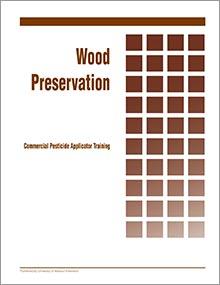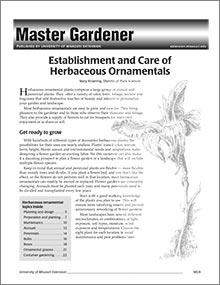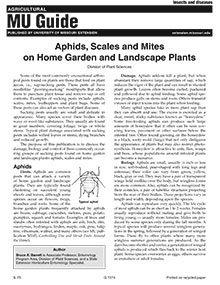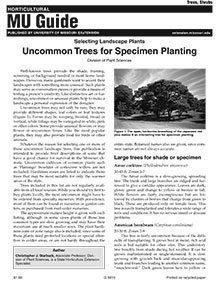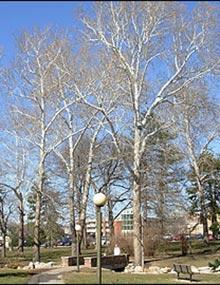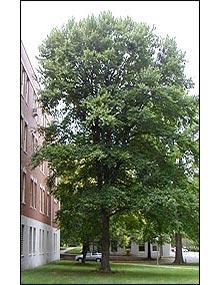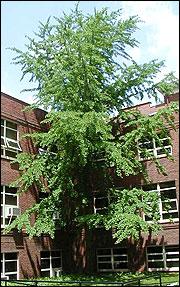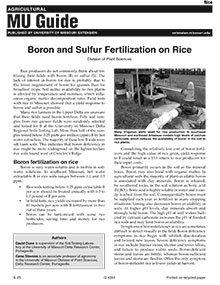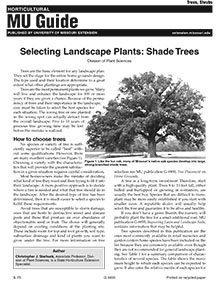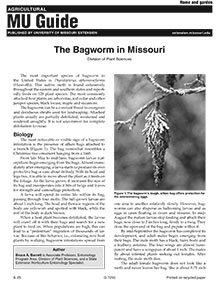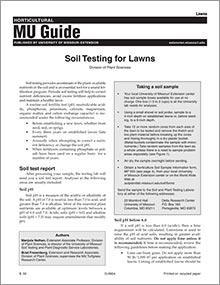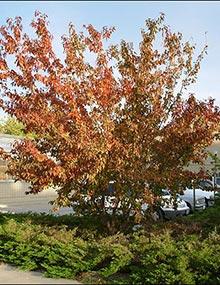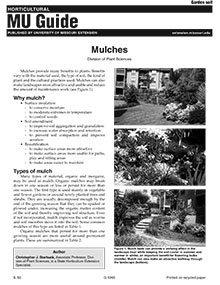Rules for Missouri Fourth-Class Cities - Page 15
New
XIV. Personnel and Records Parenthetical numbers in the text refer to sections of the current Revised Statutes of Missouri, abbreviated as RSMo. Cities are employers
Many cities do not think of themselves as employers requiring personnel policies — most have few employees and somewhat informal work arrangements.
Ants
Revised
Rules for Missouri Fourth-Class Cities - Page 18
New
XVII. Bond Issues Parenthetical numbers in the text refer to sections of the current Revised Statutes of Missouri, abbreviated as RSMo. What are bonds?
When the city needs long-term financing, it may issue a bond to raise funds. There are two types of bonds: general obligation and revenue.
Management of Glyphosate-Resistant Waterhemp in Corn and Soybean
New
Kevin Bradley
MU extension weed scientistReid Smeda
MU weed scientistRaymond Massey
Vegetable Gardening
New $10
Vegetable gardening is a rewarding activity that can provide fresh, flavorful produce. It also offers the benefits of exercise, fresh air and landscape beautification. Learn to grow your own vegetables so you can eat fresh and save on groceries.
Wood Preservation (Category 11)
New $15
Editor's note
The following abstract describes a publication that is only available for purchase.
Your Child’s Health and BMI
New
Body Mass Index (BMI), a ratio of an individual’s height and weight, is used as a screening tool to identify possible health risks such as diabetes, heart disease and asthma. Learn how to keep your child’s BMI within a healthy range.
Herbaceous Ornamentals
New $10
Chapter 9 of the Missouri Master Gardener Core Manual
Aphids, Scales and Mites on Home Garden and Landscape Plants
Revised
Piercing-sucking pests such as aphids, scales and mites are commonly found on home garden and landscape plants. Learn how to identify and control them in this University of Missouri Extension guide.
Selecting Landscape Plants: Uncommon Trees for Specimen Plantings
Reviewed
Check out some uncommon landscape trees that have a good chance for survival in the Missouri climate.
Selecting Landscape Plants: Shade Trees, Page 02
Revised
American sycamore or plane tree (Platanus occidentalis)
Selecting Landscape Plants: Shade Trees, Page 05
Revised
Black gum (Nyssa sylvatica)
Selecting Landscape Plants: Shade Trees, Page 08
Revised
Ginkgo (Ginkgo biloba)
Selecting Landscape Plants: Shade Trees - Page 11
Revised
Honey locust (Gleditsia triacanthos var. inermis) Large trees
Selecting Landscape Plants: Shade Trees - Page 14
Revised
Linden (Tilia spp.) Medium-sized trees
Selecting Landscape Plants: Shade Trees - Page 17
Revised
Red maple (Acer rubrum) Large trees
Selecting Landscape Plants: Shade Trees - Page 20
Revised
Siberian elm (Ulmus pumila)
Large trees
Maximum height
70 feet
Relative growth rate
Excellent
Freedom from insect pests
Very poor
Freedom from disease problems
Poor
Resistance to storm damage
Very poor
Will grow on poorly drained soil
Selecting Landscape Plants: Shade Trees - Page 23
Revised
Swamp white oak (Quercus bicolor) Large trees
Selecting Landscape Plants: Shade Trees - Page 26
Revised
Tulip tree (Liriodendron tulipifera) Large trees
The Bagworm in Missouri
Revised
Soil Testing for Lawns
Reviewed
Periodic soil testing helps you correct nutrient deficiencies, avoid excess fertilizer applications and maintain a healthy lawn. Learn when routine soil testing makes sense and what it analysizes in this University of Missouri Extension guide.
Selecting Landscape Plants: Shade Trees - Page 29
Revised
Yellowwood (Cladrastis kentukea) Medium-sized trees
Selecting Landscape Plants: Shade Trees, Page 03
Revised
Amur maple (Acer ginnala)
Mulches
Revised
Mulches provide many benefits to plants. Benefits vary with the material used, the type of soil, the kind of plant and the cultural practices used. Mulches also may be used to make landscapes more attractive and usable and to reduce the amount of maintenance work (Figures 1a to 1c).
